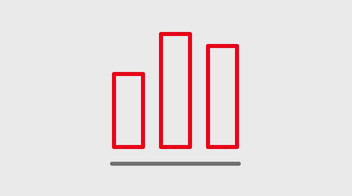Sustainability in the supply chain
We make the greatest possible contribution to sustainable development through strong partnerships in transparent supply chains. Our suppliers take an active role in ensuring mutual business success with their sustainability performance and capacity to innovate.
We have refined our social and environmental responsibility in many product group strategies across DB Group’s targets and have embedded it in our contract awarding practices in the form of suitability, performance, evaluation and implementation criteria. Our DB Code of Conduct for Business Partners (CoC BP) serves as a starting point for the sustainable design of supply chains and the specific procurement decisions and the procurement policy. Suppliers agree to the CoC BP during registration. In it, suppliers declare, among other things, that they respect human rights, including the core labor standards of the International Labor Organization (ILO). On this basis, we check compliance with the requirements of our strategic partners with event-related on-site audits.
Since January 1, 2023, we have also been legally obliged to establish responsible supply chain management in accordance with the Act on Corporate Due Diligence Obligations in Supply Chains (Lieferkettensorgfaltspflichtengesetz; LkSG). In this context, a risk analysis was carried out in 2023 in accordance with the LkSG for the DB Group supply chain in order to identify potential and actual risks of our business activities for people and the environment. Based on the results of the LkSG risk analysis, we develop and take risk-based prevention and remedial measures, including individual discussions with suppliers and on-site audits. In addition, our complaints procedure provides the opportunity to point out any deficiencies in our supply chain.
The risk-based approach is being continuously developed. From 2024, an IT solution will be implemented for the systematic and risk-oriented assessment of suppliers.
We place great importance on conducting comprehensive sustainability assessments on our suppliers with regard to their management system, activities and results. The aspects we look at are environment, working conditions, human rights, fair business practices and sustainable supply chain management. Each of these aspects is subject to minimum requirements.
The step plan for a sustainable supplier landscape has been in progress since 2023. In the procurement processes, our contractors are gradually obliged to present sustainability ratings and to achieve minimum requirements defined therein. Accordingly, in 2023, we made a sustainability assessment mandatory in all EU tenders (without defined minimum requirements). These should be submitted by the contractual partners within six months of concluding the contract. The expansion is gradual:
- From 2024 onwards, in tenders over € 100,000: Commitment to submit a sustainability rating after conclusion of the contract (without defined minimum requirements).
- From 2025 onwards in EU tenders: Commitment to present a sustainability rating with industry-defined minimum requirements.
- From 2026 onwards, in tenders over € 100,000: Commitment to present a sustainability rating with industry-
defined minimum requirements.
In 2023, more than 689 suppliers (previous year: 778 suppliers) presented us with a current sustainability assessment. This corresponds to a proportion of about 60% (previous year: about 56%) of our purchasing volume. Since 2023, only sustainability assessments that are no older than two years have been taken into account. The previous year’s figure was adjusted accordingly. The majority of suppliers who undergo repeated sustainability assessments have improved results. This allows us to work together to reduce risks and increase resilience in DB Group’s supply of goods and services. In many product groups, our suppliers can benefit from a simplified qualification process if they submit an up-to-date sustainability assessment (e.g. EcoVadis). The improved information basis through the transparency of sustainability assessments and insights into the sustainability performance of suppliers also supports the LkSG risk analysis in particular.
We are continuing to develop sustainable performance and decision-making criteria in a continuous dialog with industry associations and the Railsponsible initiative. All 17 Railsponsible members play a key role in making supply chains more transparent with more than 3,300 supplier assessments. Climate protection and safeguarding social minimum standards are the strategic focal points for responsible procurement management with Railsponsible.


